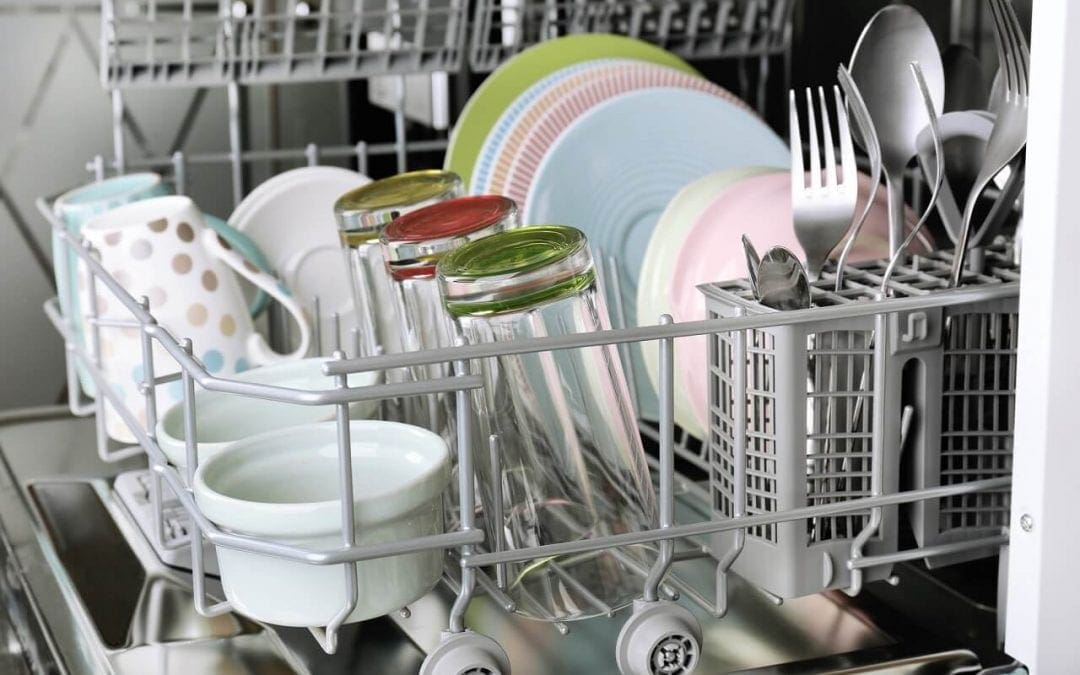There are a wide variety of home appliances to choose from. The size, quality, and brand of the appliance have an effect on its lifespan. Other factors include whether you maintain it, how often you use the appliance, and if it was new or used when you bought it. With this in mind, there is still an average appliance lifespan for any type of appliance. Here are some things to consider and tips to get the full lifespan out of your appliances.
Appliance Lifespan for the Kitchen Stove (Gas and Electric)
Gas ranges tend to have a longer lifespan at around 15-16 years than electric stoves at 12-13 years. Cleaning the appliance regularly extends its lifespan. Pull it away from the wall and remove cobwebs and dirt at least once a month. Use a mild degreaser on the stovetop to cut down on stains and grease seeping into crevices.
Tip: Avoid overuse of self-cleaning mode as it tends to add to the deterioration of the oven. It should only be used about once per year.
Microwave Oven
Whether it is freestanding or mounted into a cabinet frame, a microwave oven tends to only last around 6-7 years. Most microwaves gradually begin to lose their power over time. This may not even be noticeable until it stops working completely. It is also an appliance that gets used multiple times daily, so it tends to get more wear and tear than other kitchen appliances.
Tip: For microwaves mounted over the stove, always turn on the exhaust fan when cooking to prevent moisture from damaging the appliance.
Garbage Disposals and Trash Compactors
A garbage disposal has a lifespan of 8-15 years, depending on how it is used. The blades will wear out quickly when certain items are put into the device. Trash compactors are made to endure types of things beyond just food waste and tend to have a shorter appliance lifespan of approximately 6-7 years.
Tip: From time to time, pour a pot of boiling water down a garbage disposal to clear away trapped food.
Tip: Trash compactors should be cleaned monthly to prevent a build-up of bacteria and grease.
Appliance Lifespan for a Freezer
Whether an upright or a chest version, freezers have durability and can last for up to 20 years. Most freezers will need some form of maintenance within the first seven years to keep the proper temperature.
Tip: Vacuuming the condenser coils on the back or underneath an upright or chest freezer will help with temperature control.
Refrigerator
Newer refrigerators have an average appliance lifespan of 12-14 years. A smaller refrigerator model tends to only last about 8-10 years. The lifespan of these home appliances can differ greatly because they have so many different components. It is difficult to maintain all the parts, including the freezer, extra cooling drawers, and water dispenser all at quality working order for the same period. One part, like the water dispenser or ice maker, may stop working before the end of the appliance’s lifespan.
Tip: Keep track of regular maintenance of all the separate functions of a refrigerator on a chart, including changing the water filter and vacuuming the coils.
Appliance Lifespan for a Dishwasher
With the common daily use of this home appliance, it can see a lot of deterioration over time. That is why you should expect your dishwasher to last only about 8-9 years.
Tip: Inspecting a few parts of a dishwasher regularly will help to extend the lifespan. Check the racks for rust, the door seal for debris buildup, and the spray arms for cracks and food obstructions.
Washer and Dryer
It is common to purchase a washer and dryer together. That does not necessarily mean that you should expect these home appliances to last the same amount of time. Most washers that are made today will last 9-10 years while a dryer might last 10-13 years.
Tip: Do not wash half-full loads regularly; this wears out the washer’s mechanisms much faster.
Tip: Clean a dryer’s exhaust vent, both inside and outside twice a year, and always clean the lint screen after each use.
Furnace
This home appliance is made to be durable. It should last with regular maintenance and care for 15-25 years. The main factor in the lifespan of a furnace is the model and its source of fuel. A gas boiler will usually work efficiently for 20-22 years, while an electric furnace is less durable at 12-13 years. A heat pump falls in the mid-range of life expectancy of the two at 16-17 years use.
Tip: Scheduled annual maintenance is the key to the longevity of any type of furnace.
Homesmith Home Inspections provides inspection services to the Houston, Texas area. Contact us to request an appointment.

